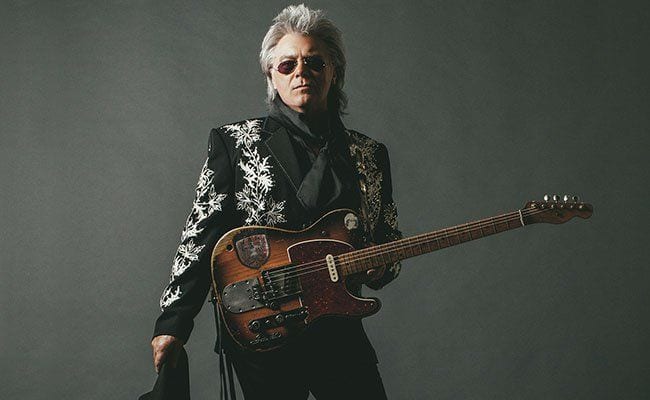
There is perhaps no more a staunch traditionalist currently working in country music than Marty Stuart. With a career that stretches back to the genre’s golden age of pre-crossover appeal, Stuart, along with the likes of Dwight Yoakam and a handful of others, continues to carry the torch for country music that recalls it. With Way Out West, his latest release with his Fabulous Superlatives backing band, Stuart embraces the long-standing romanticized view of the American West in all its myriad incarnations over the last 150 years or so. From cowboy twang to surf rock to Byrdsian jangle, the LP finds itself firmly rooted in the vast expanse that is the western portion of the North American continent.
By exploring a variety of styles immediately identifiable as west coast-centric, Way Out West plays most like a loving mixtape/homage to the defining sounds of the region. The playing throughout is, as the band’s name suggests, worthy of any number of fabulous superlatives, featuring tight guitar work, a smoking rhythm section, and pitch perfect harmonies that would make the Beach Boys smile (such as on “Desert Prayer (Pt. II)”). “Mojave” evokes images of not only the titular desert but also the surf rock instrumentals that helped soundtrack an entire way of life in the early 1960s. That it immediately goes into the Marty Robbins-esque “Lost on the Desert” further underscores the stylistic unpredictability of what is to follow, making each track a thrilling discovery in and of itself.
Stuart shows himself to be in fine voice throughout, utilizing the whole of his range. On the title track, he channels Lee Hazlewood’s deep growl as he recounts a tale of drug use gone bad (inspirational lyric: “Just don’t take pills / They’re bad / They’ll kill ya”). It’s a psychedelic country exploration as ephemeral and shimmering as the hallucinations no doubt brought about by the consumption of the pills in question. It’s a fine arrangement and short story in miniature told in a sort of talking blues style augmented by spiraling harmonies and walls of reverb. Meanwhile, “Wait for the Morning” offers a countrified take on the Laurel Canyon sound, adding yet another layer to the album’s loving homage to the musical history of the West.
Unfortunately, the vocal tracks are interspersed with more than a handful of instrumentals, few of which serve to truly further the overarching narrative employed by Stuart and company as they seek to embody the mythos of the American West. There are touches here and there that indeed provide not only appropriate contextualization, but also spot-on recreations of well-known styles emanating from the West Coast (surf rock guitar, Bakersfield twang, etc.). But as it becomes clear that Stuart is seeking to craft an album that relies solely on its thematic elements, these brief interstitial instrumentals tend to feel more like filler than considered compositions designed to further underscore the overarching narrative concept of the album.
Of course, this is but a minor quibble since the instrumentals, as inconsequential as they may be in the grand scheme of things, feature impeccable playing (namely, the nimble guitar work of Little Jimmy Vaughn). His style and approach to the instrument so perfectly recreate a bygone era that one would easily be fooled into believing them to be from some lost session (circa 1966). It’s this attention to stylistic detail and a clear love for the stylistic source material that makes Way Out West, even in its weakest moments, such a joy to listen to. These are not mere genre exercises or pastiche; rather, they’re the product of a group of people who are as much cultural preservationists as they are musicians.


![Call for Papers: All Things Reconsidered [MUSIC] May-August 2024](https://www.popmatters.com/wp-content/uploads/2024/04/all-things-reconsidered-call-music-may-2024-720x380.jpg)



